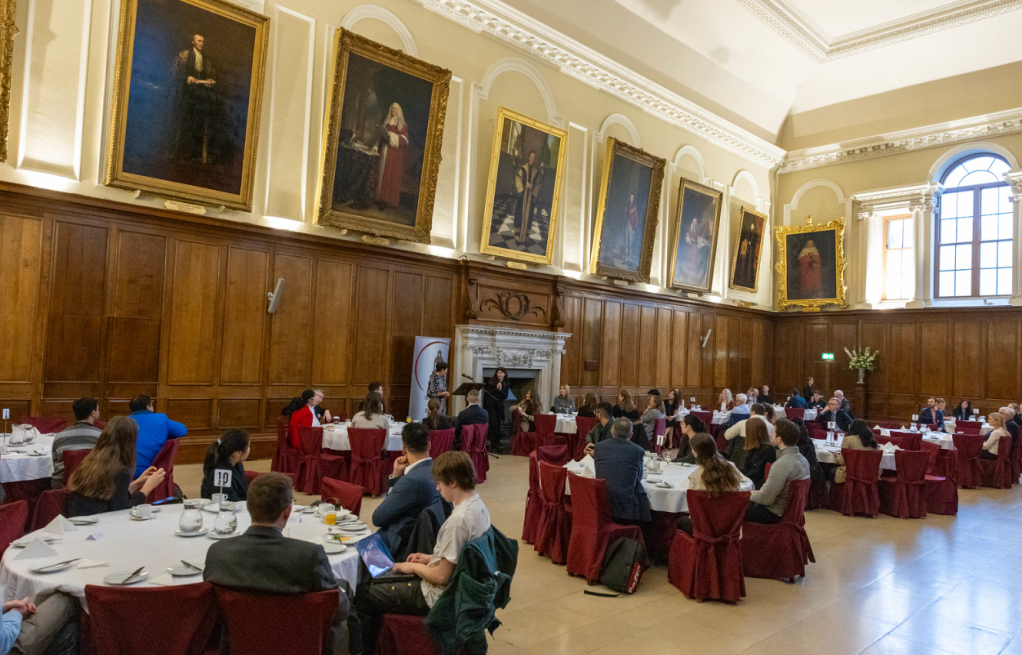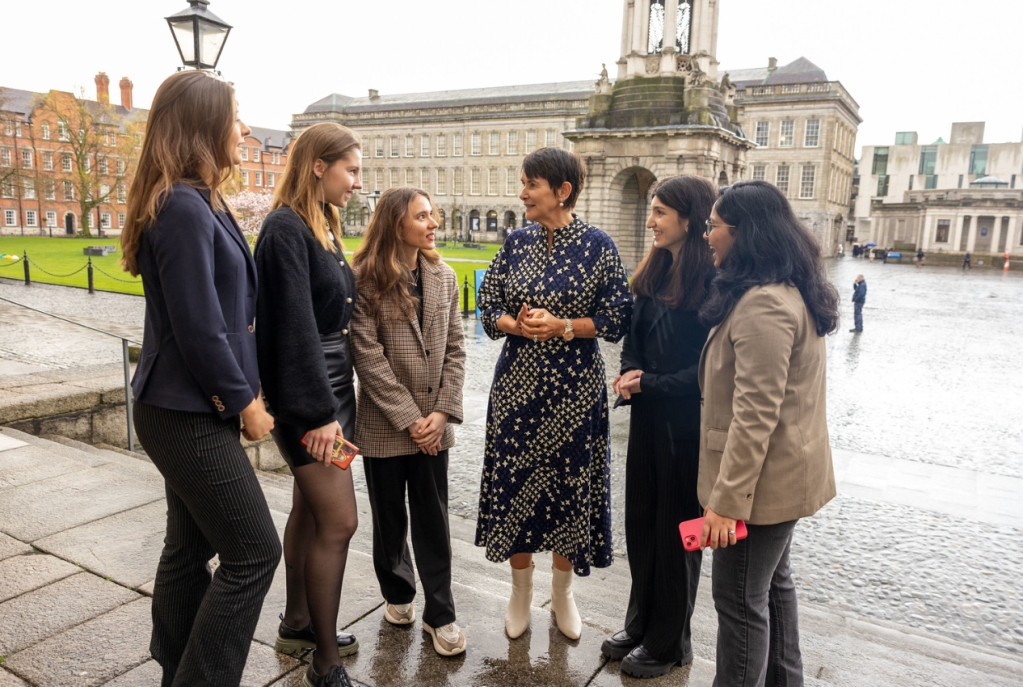Foresight Business Breakfast: Insights from Carolan Lennon & Pioneering Equity in the Tech Sector

Ayesha Ahmed & Michael D. Mooney
The recent Business Breakfast hosted by TCD Foresight Business Group featured speaker Carolan Lennon, Country Leader at Salesforce Ireland. Ms. Lennon, known for her trailblazing efforts in the tech industry, shared her insights on the transformative power of education, the values that drive Salesforce, and the importance of diversity, equity and inclusion within her speech. Additionally, the breakfast provided a space for getting to know professional Trinity alums who are excelling in their field and were open and ready to help current students with their questions concerning business, the job market and politics.
In her address to the breakfast attendees, Lennon shared her experiences as a woman in a historically male-dominated field, and the significance of her work in shaping the future of business in Ireland. For those who couldn’t attend, here were Lennon’s main talking points:

Education as a Game Changer
Ms. Lennon emphasised the pivotal role of education as a game changer in her professional journey. Having studied computer science at University College Dublin (UCD) in the 1980s, Ms. Lennon recognised the need to broaden her knowledge base and pursued an MBA at Trinity College Dublin. This proved to be an invaluable decision, equipping her with the skills and mindset necessary for success in the ever-evolving tech industry.
Salesforce’s Customer-Centric Approach
Ms. Lennon shed light on Salesforce’s unique approach as a customer centric company. Since its inception in 1999, Salesforce has been at the forefront of customer relationship management (CRM), revolutionising sales, marketing and commerce. The company prides itself on bringing customers and companies together by fostering trust, promoting equality and championing sustainability. Salesforce’s commitment to social impact is evident through its pledge to donate 1 percent of its profits, time and products to charitable causes, accounting for nearly $800 million USD in donations to date.
Breaking Barriers and Building Networks
Transitioning from the telecommunications industry to technology, Ms. Lennon faced the challenge of rebuilding her professional network. She emphasised the importance of owning one’s career and taking action, advocating for clear communication with superiors about career aspirations. Her experience highlights the significance of not only focusing on learning new technologies but also actively nurturing relationships and seeking opportunities beyond the confines of one’s daily work.
Diversity, Equity, and Inclusion
Ms. Lennon passionately discussed the importance of diversity, equity, and inclusion (DEI) in the workplace. Citing research and results, she underscored the positive impact of diverse teams on performance. She recounted her experience at a previous organisation where she helped in transforming the gender ratio from 9:1 to 1:1. Additionally, she acknowledged the need for greater diversity not only in terms of gender but also in terms of socioeconomic backgrounds, emphasising that true diversity extends beyond surface-level differences.
The Rise of AI and the Future of Business in Ireland
Looking ahead, Ms. Lennon identified artificial intelligence (AI) as the next major technological evolution. While acknowledging the increased interest in AI adoption among CEOs, she highlighted the importance of understanding its ethical implications and ensuring its accessibility and applicability. She also emphasised the need to address biases embedded in AI technologies, which often mirror the biases present in society. The future of business in Ireland, particularly in the tech sector, is heavily influenced by ongoing developments in AI.
Irish Women Breaking Barriers
As a woman diversifying a historically male-dominated field, Ms. Lennon encountered her share of challenges. However, she found a supportive environment at Salesforce, aligning with the company’s values of equity and inclusion. Her advice to aspiring professionals, particularly women, is to actively engage in extracurricular activities such as networking groups and to assertively communicate career aspirations to supervisors. Research on workplace dynamics and statistics on women’s experiences in Ireland can shed further light on the progress and areas for improvement.
The Referendum and the Changing Workplace Landscape
In light of the recent referendum concerning women and working from home, her insights become even more relevant. The evolving workplace landscape demands a renewed focus on equity, flexibility and inclusivity. As Ireland seeks to create a more balanced and empowered workforce, her experiences and perspectives serve as valuable touchstones for progress.

Conclusion
Throughout the breakfast, Ms. Lennon delved deeply into her journey from telecommunications to technology, exemplifying the power of education, resilience, and a values-driven approach. Her experiences combined with the engaging conversations of Trinity alumni helped foster a sense of community, and a reassurance that yes, other people who went through the similar courses did find light at the end of the tunnel. Thank you to all participants who helped students gain an insight on how to actively pursue career opportunities, and contribute to a more inclusive and innovative future for businesses in Ireland and beyond.







